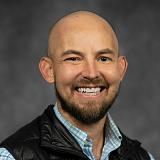
Hematology & Oncology - Training Second Year
Scientific Career Building: Year Two and Beyond
The major focus of the next two (or more) years of the program is research training. The program provides flexibility, allowing trainees to achieve their goals. Fellows may choose basic science, translational, or clinical research focused projects.
The choice of a research direction is made by the fellow in association with members of the division. Fellows identify a robust training environment that will also fulfill the requirements of the fellowship.
Fellows may choose to join research programs in virtually any department in the University. Based on the fellow's research program, clinical responsibilities (call, clinic, and inpatient service) will be tailored to ensure an appropriate balance of ongoing research and clinical training.
The fellow's research progress is monitored by an oversight committee, who ensures the fellow is on-track to complete all fellowship requirements and gets strong training in their chosen field.
Lab-Based Research
Fellows who choose lab-based research programs will benefit from close relationships with various institutes, programs, and departments at the University. These include (but are not limited to):
- Huntsman Cancer Institute at the University of Utah (HCI)
- Eccles Institute of Human Genetics
- the graduate program in Molecular Biology
- Department of Oncological Sciences
- Department of Human Genetics
- Department of Pathology
A partial list of faculty and their research programs can be viewed at www.bioscience.utah.edu.
Fellows pursuing basic research projects are also eligible to apply for research funding through one of several T32 training grants aligned with their research interests. While the division supports and mentors fellows during the research phase of fellowship training, all fellows are encouraged to apply for extramural funding for their research efforts.
Clinical & Translation Research
Fellows who choose clinically or translationally-focused research training will benefit from the NIH’s Clinical Research Curriculum Award (K30) training program available on campus. The course objective is to provide formal training with physicians planning academic careers as clinical and translational investigators.
The curriculum includes core courses and two specific research training tracks. The first track focuses on the inherited basis of human disease and reviews general principles of molecular biology and genetics applicable to clinical research.
The second track focuses on epidemiology, clinical outcomes, clinical trials, and health services outcomes. This program facilitates clinical investigators’ professional development by offering a specific, mentored research experience to complement its didactic programs.
Contact Us
Billy Thomsen, MD fellowship director, or Joann Chavis, fellowship program coordinator, at ped.education@hsc.utah.edu or 801-662-5700.
Division of Pediatric Hematology/Oncology
Primary Children's Hospital
100 North Mario Capecchi Drive
Salt Lake City, UT 84113



